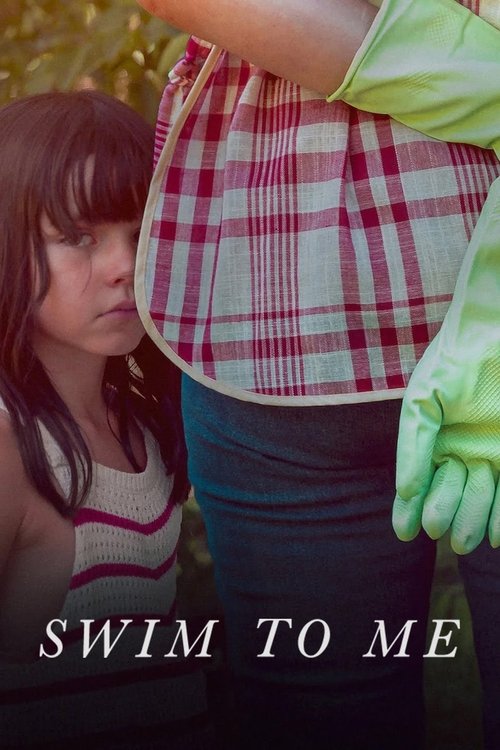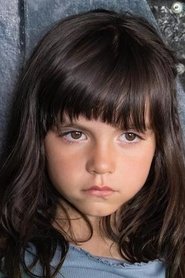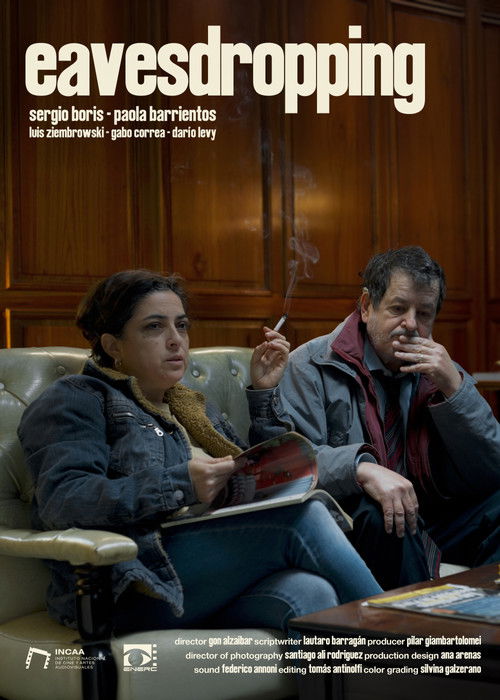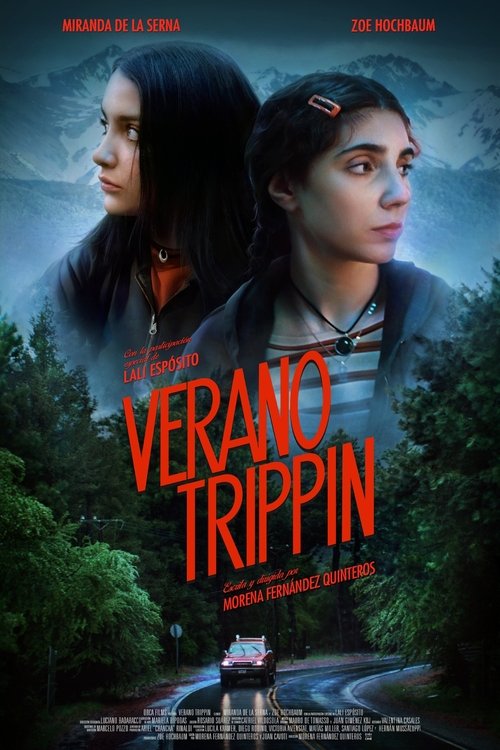
Ask Your Own Question
What is the plot?
Neddy Merrill is lounging beside a swimming pool at an expansive summer party on a mountaintop estate in a wealthy suburban enclave. He is in his fifties, wearing only a swimsuit, relaxed among well-to-do friends whose grounds slope down into a wide valley. From where he sits on the pool deck he looks across the hillside and notices dozens of other backyard pools glinting like pieces of blue glass scattered on lawns and terraces. From his vantage point the line of water-filled rectangles seems to form a continuous ribbon leading down the hillside to the valley below. A sudden notion seizes him: rather than walk or drive home, he will use those pools as stepping stones and "swim" his way across town, progressing from one property to the next until he reaches his own house at the foot of the valley where his wife and young daughters are waiting.
He rises and sets off immediately, leaving the mountaintop gathering. At the next property he encounters acquaintances who greet him warmly. They invite him onto their terrace and hand him a cocktail without question. He accepts the drink and takes a quick dip in their rectangular pool, laughing with his hosts as if this passage between lawns is an expected, convivial ritual. He exits the water, towels himself by the poolside, hears pleasant small talk about summer affairs and mutual friends, and thanks his hosts before moving on to the next yard.
As he proceeds through successive neighborhoods, the pattern repeats: he arrives at a pool, is welcomed by homeowners who supply a towel and a drink, and he swims a brief length before stepping out to exchange pleasantries. The neighbors appear at first to know him well and to enjoy his company. They offer him beer and martinis, hand him cigarettes, and tell him anecdotes about the community's social calendar. He allows their hospitality to buoy him. He moves with a buoyant recklessness, counting on each intervening pool to take him closer to the house he imagines is still waiting for him.
With each property he crosses, however, remarks from the people he meets begin to alter the tone of his journey. Casual compliments thin into pointed comments about the past, and the small talk that once affirmed his social standing starts to reveal differences in perception. At one house a man he once socialized with mentions, in an offhand way, that the Merrill household has changed since the days the family kept an immaculate staff. At another stop a neighbor's laughter carries a brittle edge when he asks after Neddy's daughters; the neighbor's questions about the girls' ages and whereabouts arrive with an undertone of surprise that suggests they are no longer the children Neddy remembers.
Neddy hears the words but treats them as misunderstandings. He answers with certainty about his family's youth and happiness. He insists to anyone who doubts him that his daughters are "little girls" who still need him and who adore him. He keeps moving forward, stroke by stroke, accepting drinks and handshakes while his energy remains high and his mood remains buoyant.
Halfway down the hill he comes to one pool where a woman from his past is present: a former lover whom he left abruptly years ago. He believes, at first, that she might still harbor affection for him. They stand at the edge of her pool and exchange a few sentences. She listens without surprise when he speaks of their old connection but does not answer with nostalgia. Rather than embracing him, she rejects him. She tells him plainly that any tenderness that once existed is gone and that she will not provide him with money or assistance. Her rejection is direct; she looks at him with contempt and warns him away. Neddy receives this blow with a mixture of disbelief and wounded vanity, but he continues on, propelled by the fragile hope that the next house will restore the hospitality and deference he expects.
He keeps swimming across lawns. He is in noticeably good physical condition and his strokes retain shape, but his pace slows imperceptibly as chill begins to creep into his limbs. The water in each pool has a different smell and temperature; some pools are chlorinated and bright, some are shaded and cold. He begins to shiver between lengths. Neighbors who offer him drinks sometimes fuss over him with mock paternal concern and sometimes speak with undertones of irritation. At a pool where an acquaintance asks about his employment, the answer he gives -- that he is doing fine -- draws a look that mixes pity and disbelief. Rats of tension begin to gather like storm clouds over his memory.
He reaches a municipal public swimming pool, a rectangular facility fenced and tile-lined, where community members come to swim laps and socialize in a less affluent setting than the manicured backyards he has passed. He stands at the gate and discovers that he has no money with which to pay the admission fee. He is wearing only his trunks and a towel, and he has left his wallet behind in the carefree rush of his departure hours earlier. He paces along the fence and spots a local caterer he recognizes -- a man whose services the Merrills once patronized. Neddy approaches him with an unsteady optimism and asks for a little change so that he can get inside and swim.
The caterer hesitates, glancing at Neddy's wet hair and the way his body trembles. He produces a few coins, counting them into Neddy's outstretched hand. Neddy drops the coins into his own palm and offers a gesture of gratitude before stepping through the gate and into the public pool area. He pays the fee and slips beneath the water for a lap. The public pool's lanes have the blunt, communal feel of municipal facilities; the lifeguards are alert and the other swimmers watch with practiced indifference.
As Neddy completes a length and rises to the edge, he hears a chorus of voices speaking behind him. The caterer and several local merchants and their wives are gathered on the deck, and their conversation turns to Neddy. Their tones are mocking. They mention, openly and with little restraint, that the Merrills used to live beyond their means. They recount how the family would pay late or write bad checks to cover the services those tradespeople provided. A shopkeeper says plainly that the Merrills' spending habits cost other people trouble. The caterer's wife speaks next. Her voice tightens as she brings up run-ins between Nedddy's daughters and the law, hinting at juvenile misbehavior and arrests that the twenty-something girls have endured. She blames Neddy directly, saying that he was absent and ineffectual as a father and that the girls were left without proper discipline.
Neddy stands in the lane with water dripping from his hair and listens. The information lands on him like a physical shock because it contradicts the memories he is carrying with him. He experiences these confessions as if they are not about the life he remembers. He insists aloud, to whoever will listen, that his daughters love and respect him and that any suggestion of his failure as a husband or father is false. His voice strains with pleading certainty. The caterer answers tersely: the daughters thought less of Neddy than he believes, he says, and they and their contemporaries regarded him as a joke. The merchants and their wives nod and exchange looks that confirm the caterer's words. Their laughter and scorn prick Neddy with humiliation.
He ducks out of the public pool with a sudden burst of panic. He wraps his towel around his shoulders but does not take time to dry himself properly; he runs across the parking lot and out of the fenced area. He crosses a busy road and starts up the slope that leads to the valley where his home stands. Rain begins to fall as he climbs. At first it is a light mist, then thicker drops that soak through his towel and chill him to the bone. He keeps running despite the weather, his bare feet slapping on the wet pavement as he makes for the house he believes will receive him with open arms.
When he arrives at the bottom of the valley, he finds a property that looks abandoned. The mansion he imagines is there in outline, but the estate is in disrepair. The lawn is overgrown in patches, the gates hang slightly off their hinges, and the driveway's stonework is mossed and cracked. The house's facade shows weathering and neglect. He walks up to the front door and finds it locked. He puts his hand on the brass knob, twists, and the mechanism resists. He tries the other doors and windows and discovers each is bolted from within or boarded. He jostles the doors, calls out his wife's name, shouts for his daughters, but there is no sound in response other than the steady patter of rain.
The empty rooms inside are dark through curtained windows; from outside, through the panes, he sees dust motes and the outlines of furniture that look as if they have not been used in some time. He presses his palm to the glass and his fingers come away moist with condensation. He crouches beneath the eaves to shelter from the rain and looks up the valley to the houses he has passed. They seem like islands he has visited and then, in a single revealing moment, he recognizes that each stop along his route has contained people who remember him differently than he remembers himself. Memory and reputation have diverged, and the world around him reflects a history he cannot reconcile with his inner certainties.
He feels the tremor of exhausted muscles and the sting of cold on his shoulders. He thinks about the money he has no longer, the job he can no longer name with confidence, the friends who no longer lean toward him. He remembers -- with only the faintest, distorted impressions -- that there were arguments and messes he refused to confront and that offers of help were left unanswered. Pieces of distant conversations begin to click into place, but he cannot order them into a coherent timeline. The neighbors he has met along the way have told these fragments in their own words; each remark functions as evidence of a life that has slid away from the one he insists he has lived.
A neighbor standing across the street watches him with a look that mixes curiosity and pity. She crosses the boulevard and offers to call a taxi or to fetch a blanket. He waves her away, mutters that he will be fine, and presses his wet towel closer. The rain increases and soaks through his swim trunks and onto his skin. He bends forward, hunching against the chill, and his breath comes in ragged, visible plumes in the gray afternoon air. He begins to cough.
He realizes, as he leans against the locked door, that his house no longer shelters him. The notion that his family is waiting inside is replaced by the sensory knowledge of vacancy: no lights glow in the windows, there is no sound of radio, nor the light footsteps of children. The locked doors and the deserted grounds make a reality of exile. He cannot find a key or a familiar face to let him back in. He bangs on the door with the heel of his hand until his knuckles ache. Light streams from a neighbor's pool in the distance and the laughter from a nearby party seems outrageously normal in contrast to his own solitude.
He collapses on the stoop, the towel falling away and pooling under him. The rain pours down and soaks his hair and his clothes; mud splashes and colors the hems of his swim trunks. He begins to cry. The sound of sobbing is raw and startling as it echoes off the house's empty facade. He cannot get the doors to open; he cannot call up an answer from inside. People in the neighborhood look on from across their yards or through security-lit windows; some avert their eyes, others watch with a detached interest.
In that place beneath the rain, he seems to understand that many pillars of his life have eroded: employment and income, social standing, family cohesion, a secure home. There is the sense that alcoholism has corroded his ability to hold those things in place and that when he moved into denial and charm, the foundations crumbled. He is naked to the world both physically and emotionally, shaking in the weather, sodden and losing the battle with cold and exhaustion. He repeats names and gentle admonitions under his breath, searching for a door that will open.
No person dies over the course of Neddy Merrill's passage. The people he meets along the way -- the neighbors, the former lover, the caterer and merchants, the merchants' wives, the civic lifeguard and attendant swimmers -- all remain alive and present at their homes or in the public pool. When the film reaches its close the only event that transpires is Neddy's final arrival at his locked and empty house; there is no on-screen death. The last visible actions are his pounding on the sealed doors, his collapsing onto the threshold, his wet body shuddering as rain mixes with tears, and his anguished, alone figure refusing to get out of the storm.
The picture holds on him as the camera observes the dissolving opposition between the life he remembers and the life others have recounted to him. He remains outside in the rain, half-naked and unprotected, and the scene ends with him crying and huddled beneath the eaves while the streetlights pick out the wet gleam of the sidewalk and the pools he traversed glittered like a trail leading away from the house that will not let him in.
What is the ending?
Short, Simple Narrative of the Ending
At the end of Swim to Me, Estela, the nanny, is dismissed by Julia's mother, Mara, and leaves the household. As Estela waits at the bus station to return to her own family, she receives a call from the groundskeeper, Iván. The film then cuts to a scene of Julia, the young girl, jumping into Lake Caburgua and drowning. The story ends with Estela standing in the rain, devastated, as the reality of Julia's death sinks in.
Expanded, Chronological, Scene-by-Scene Narrative of the Ending
The final act of Swim to Me begins with a palpable tension in the Jensen household. Mara, Julia's mother, has made the decision to let Estela go. The atmosphere is heavy; Estela moves through the house quietly, packing her belongings. Julia watches from a distance, her face a mask of confusion and hurt. She does not speak, but her eyes follow Estela's every move, silently pleading for her not to leave. Estela, for her part, is reserved, her movements deliberate, her emotions tightly controlled--yet there is a visible tremor in her hands as she folds clothes and places them in her suitcase.
Mara stands in the doorway, arms crossed, her expression a mixture of relief and discomfort. She avoids Estela's gaze, focusing instead on the floor or the wall, as if the act of dismissing her is something she would rather not witness directly. Cristobal, Julia's father, is absent from these final moments, underscoring the emotional distance within the family. The house, usually filled with the sounds of Julia's laughter or the clatter of daily life, is eerily silent.
Estela finishes packing. She takes one last look around the room that has been her home, her eyes lingering on Julia's toys, the small bed where she sometimes sat with the girl, reading stories or simply holding her hand. She does not say goodbye to Julia; perhaps the words are too difficult, or perhaps she fears breaking down in front of the child. Instead, she gives Mara a curt nod, picks up her bags, and walks out the front door. Julia remains inside, her small frame pressed against the window, watching as Estela disappears down the driveway.
Outside, the sky is overcast, the air thick with the promise of rain. Estela walks to the bus station, her steps slow, her mind clearly elsewhere. She meets Carlos, a man she has grown close to during her time in the city. They embrace--a brief, wordless moment of comfort--before Estela continues on her way. The bus station is crowded, noisy, a stark contrast to the quiet of the Jensen house. Estela buys her ticket, finds a seat, and waits, her face a study in exhaustion and sorrow.
As the bus engine starts and the vehicle begins to pull away, Estela's phone rings. It is Iván, the groundskeeper. The camera stays on Estela's face as she answers; we do not hear Iván's words, but Estela's expression shifts from confusion to horror to a kind of numb disbelief. Without a word, she stands, grabs her bag, and exits the bus just as it is about to depart. She stands on the wet pavement, the rain now falling in earnest, her clothes quickly soaked. She does not move, does not speak; she simply stands there, the phone still in her hand, her body trembling.
The film then cuts abruptly to Lake Caburgua. The water is dark, the surface choppy from the wind. Julia, dressed in her swimsuit, stands at the edge of the lake. Her face is blank, her eyes empty. She does not hesitate; she steps forward and jumps into the water. The camera follows her descent, the light fading as she sinks deeper, her small form becoming indistinct in the murky depths. There is no struggle, no attempt to swim to the surface. Julia simply lets herself go, her body drifting downward until she disappears from view.
Back at the bus station, Estela remains motionless in the rain. The sounds of the city--horns, voices, the rumble of engines--fade into the background. Her face is wet with both rain and tears, her breath coming in short, ragged gasps. The realization of what has happened is written across her features: Julia is gone, and there is nothing she can do.
The film ends with Estela still standing there, the rain pouring down, the world moving on around her. The final image is of her alone, isolated in her grief, the weight of Julia's death--and her own role in it--settling over her like the storm.
Fate of the Main Characters at the End
- Estela: She is alive, physically unharmed, but emotionally shattered. She has left the Jensen household and is attempting to return to her own family when she learns of Julia's death. The film leaves her standing in the rain, overwhelmed by grief and guilt.
- Julia: She dies by suicide, drowning herself in Lake Caburgua after Estela's departure. Her death is shown on screen; she jumps into the lake and does not resurface.
- Mara: She remains at home, having dismissed Estela. Her emotional state is not shown after Julia's death, but her decision to let Estela go is a direct catalyst for the tragedy.
- Cristobal: He is absent during the final scenes; his whereabouts and reaction to Julia's death are not depicted.
- Iván: He is the one who calls Estela with the news of Julia's death, though his exact words are not heard by the audience.
- Carlos: He shares a brief, comforting moment with Estela before she leaves, but he is not present for the aftermath of Julia's death.
Key Points the Movie Highlights Through These Events
The ending of Swim to Me starkly illustrates the consequences of emotional neglect, the fragility of human connection, and the invisible boundaries of class and employment. The relationship between Estela and Julia is the heart of the film--a bond that transcends the roles of nanny and child, yet is ultimately constrained by the realities of their positions. Julia's attachment to Estela is profound, but when Estela is forced to leave, Julia is left without emotional support, leading to her tragic decision. The film does not shy away from showing the immediate, devastating impact of this loss on Estela, who is left to grapple with her grief in isolation. The rain-soaked final scene underscores the theme of inevitability--the tide of events that cannot be stopped, no matter how much one might wish otherwise. The movie's power lies in its unflinching portrayal of these moments, allowing the audience to feel the weight of each character's choices and the ripple effects of their actions.
Who dies?
Yes, in the 2025 movie Swim to Me, a character does die. The six-year-old girl Julia dies by suicide near the end of the film. After Estela, the maid and Julia's caretaker, leaves the household as instructed by Julia's mother Mara, Julia is shown jumping into Lake Caburgua and drowning. This act is portrayed as a tragic consequence of the complex and intense emotional bond between Julia and Estela, where Julia's deep attachment and confusion about their relationship lead to her taking her own life.
No other character deaths are reported in the available plot summaries and analyses of the film. The focus is primarily on the emotional dynamics and class tensions between Estela and the Jensen family, culminating in Julia's death as a pivotal and haunting event.
Is there a post-credit scene?
There is no specific information available about a post-credit scene in the movie "Swim to Me" produced in 2025. The available details focus on the plot and ending of the film, which revolves around Estela, a young woman from rural Chile who works as a maid for an affluent household. The ending involves Estela leaving her position and the revelation that Julia, the child she cared for, has died by suicide. However, there is no mention of a post-credit scene in the provided sources.
What is the nature of the relationship between Estela and Julia in Swim to Me?
Estela, a young maid from rural Chile, develops an intimate and complex bond with Julia, the six-year-old girl she cares for in a wealthy household. Their relationship evolves beyond routine caregiving into a secret, dependent world where affection and obsession blur, deeply affecting both characters throughout the film.
How does Julia's swimming education and attitude toward swimming affect the plot?
Julia's parents have conflicting approaches to teaching her to swim--her father uses a harsh method of throwing her into the pool, while her mother prefers exclusive swimming lessons. Julia resists these methods, and Estela, noticing her reluctance, takes her out of the classes and assumes responsibility for teaching her, which strengthens their bond and influences the story's emotional dynamics.
What role does Estela's personal background and family situation play in the story?
Estela is from rural Chile and works as a maid in Santiago, isolated from her own family. Her mother suffers a hip injury, and Estela struggles with the tension between her demanding job and her desire to support her family. This personal conflict adds depth to Estela's character and influences her decisions, including her eventual departure from the household.
What are the circumstances and significance of Julia's death in the film?
Julia dies by suicide, drowning herself in Lake Caburgua during the family's vacation. This tragic event is foreshadowed by her deep but complicated attachment to Estela and the emotional isolation she experiences. Julia's death marks a pivotal and haunting moment in the film, underscoring themes of dependence, control, and the limits of care within their relationship.
How does Estela's departure from the Jensen household unfold and what does it signify?
Following instructions from Mara, Julia's mother, Estela packs her bags and leaves the household. She briefly meets with Carlos and then heads to the bus depot but is stopped by a call from Ivan, the groundskeeper. This moment of hesitation and the subsequent revelation of Julia's suicide highlight Estela's emotional turmoil and the irreversible changes in her life, symbolizing the end of her intimate but fraught connection with the family.
Is this family friendly?
The movie Swim to Me (2025) is not family-friendly and is rated TV-MA in the U.S. and 16+ or M18 in other countries, indicating it is intended for mature audiences. It contains emotionally intense and potentially upsetting themes rather than explicit violence or sexual content.
Potentially objectionable or upsetting aspects for children or sensitive viewers include:
- Emotionally intense and dramatic scenes involving complex social class dynamics, dependency, and power imbalances between a domestic worker and a child she cares for.
- Themes of belonging, inequality, and tragedy that may be distressing for younger viewers or those sensitive to emotional heaviness.
- Mild references to alcohol, drugs, or smoking may appear contextually but are not prominent.
- No major violence, graphic gore, or explicit sexual content has been reported, but the film's tone is serious and may be emotionally heavy.
Parents are advised to preview the film and consider co-watching with younger teens or sensitive viewers to discuss its mature themes and emotional content.


























